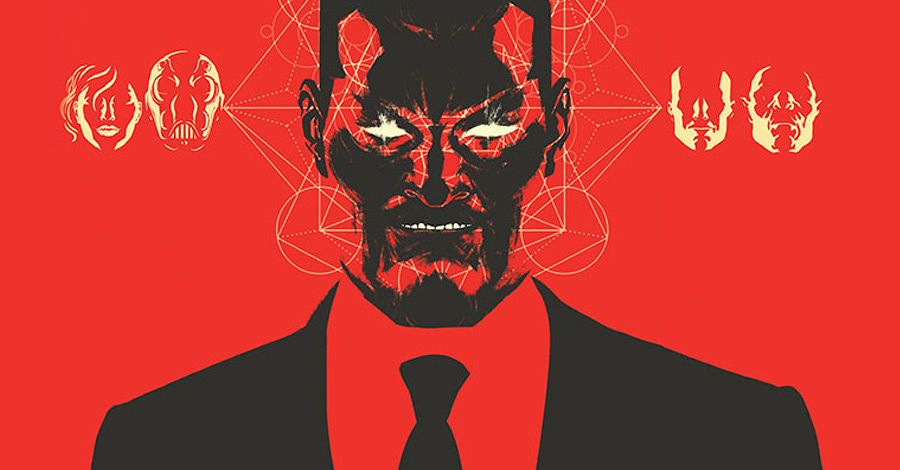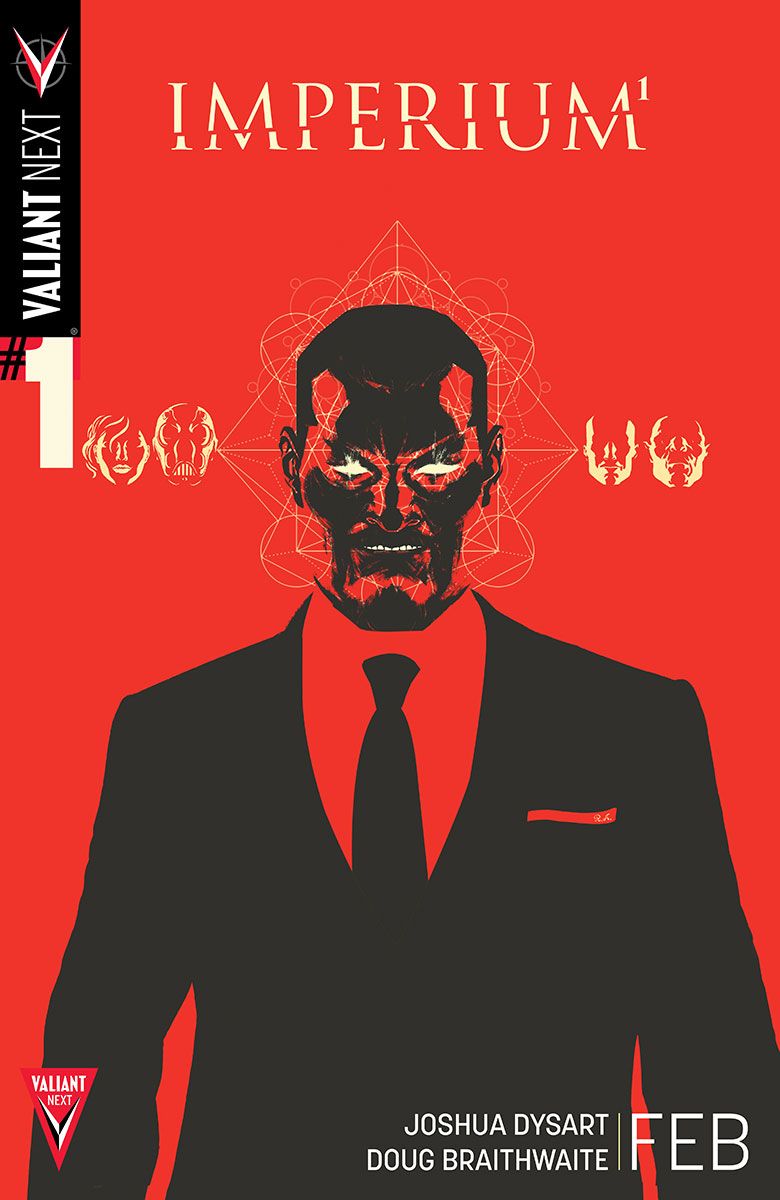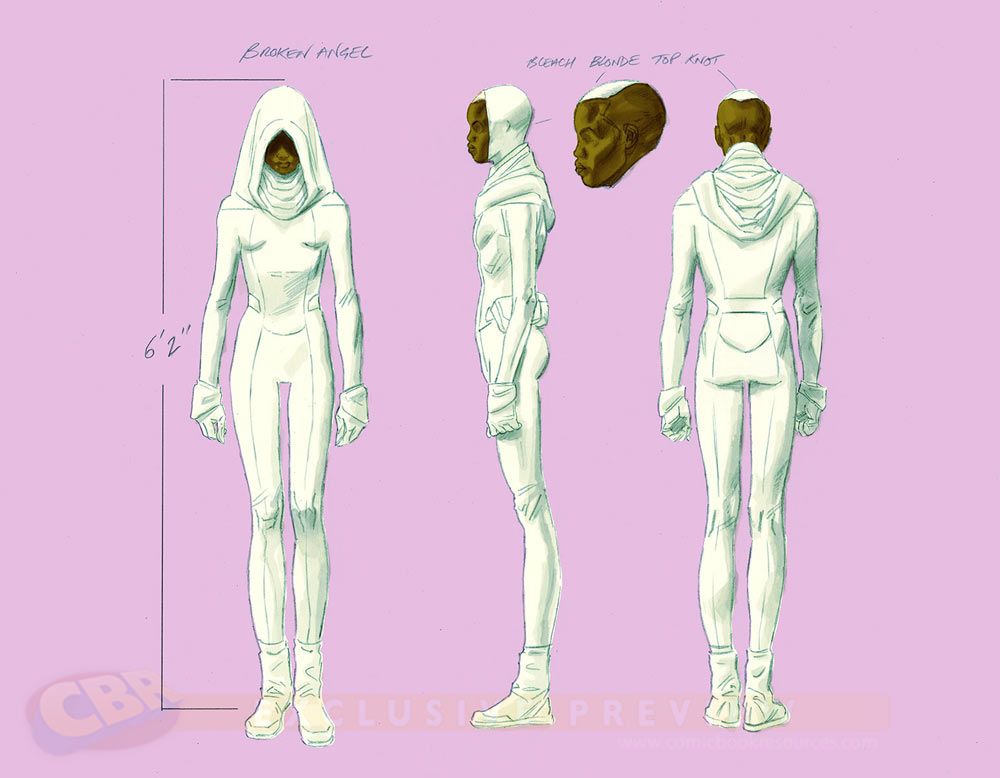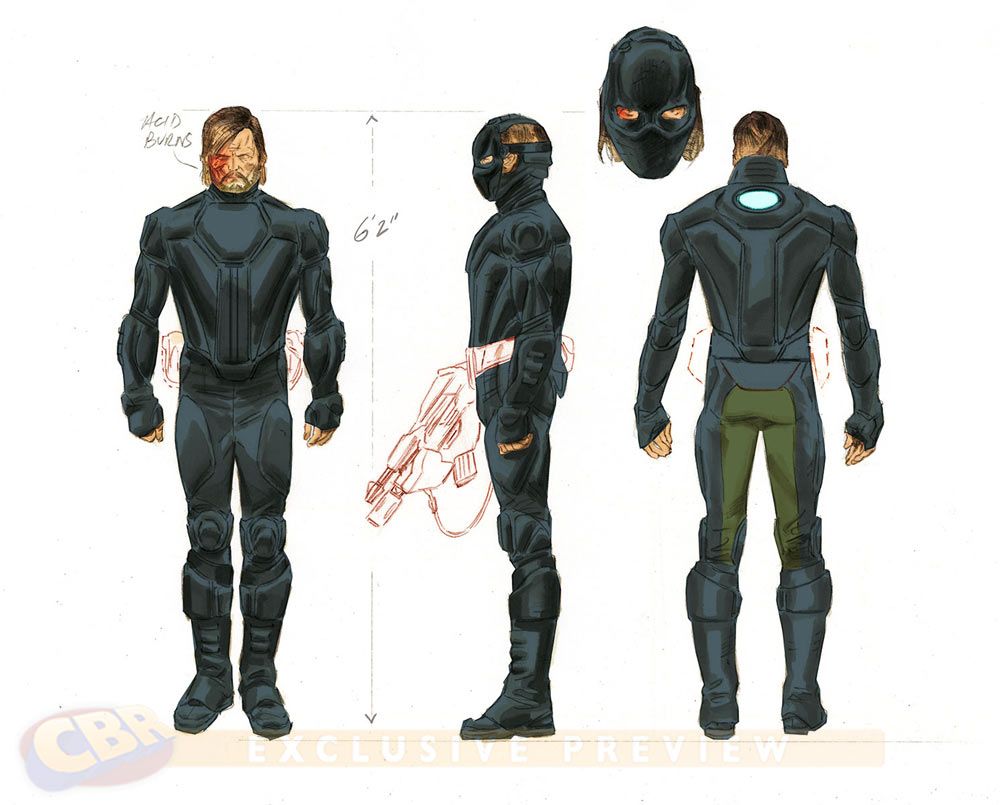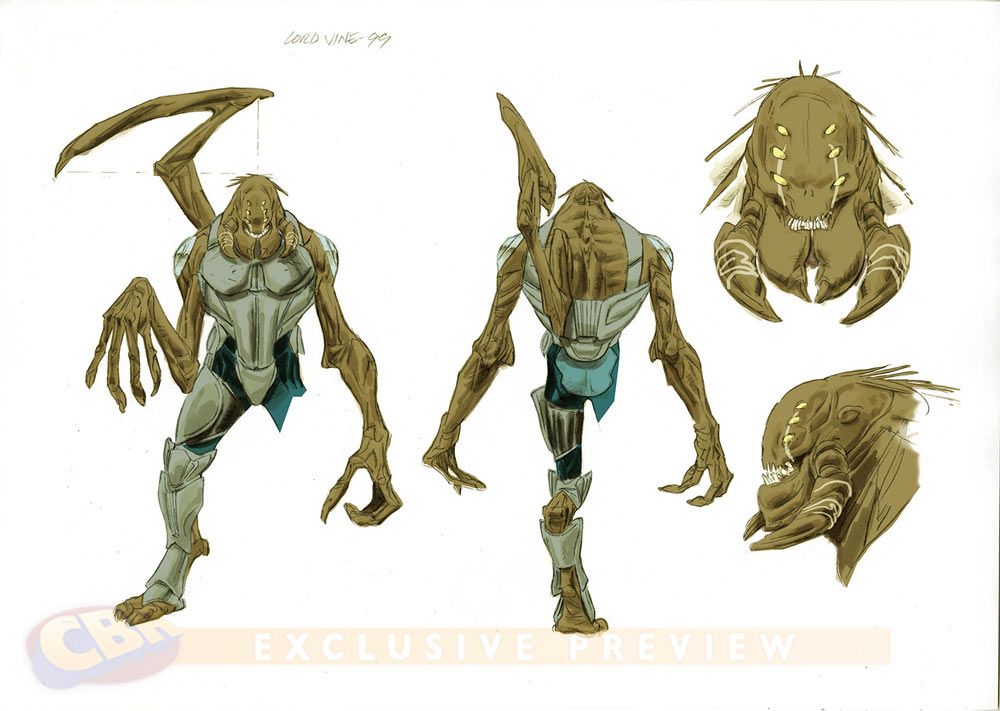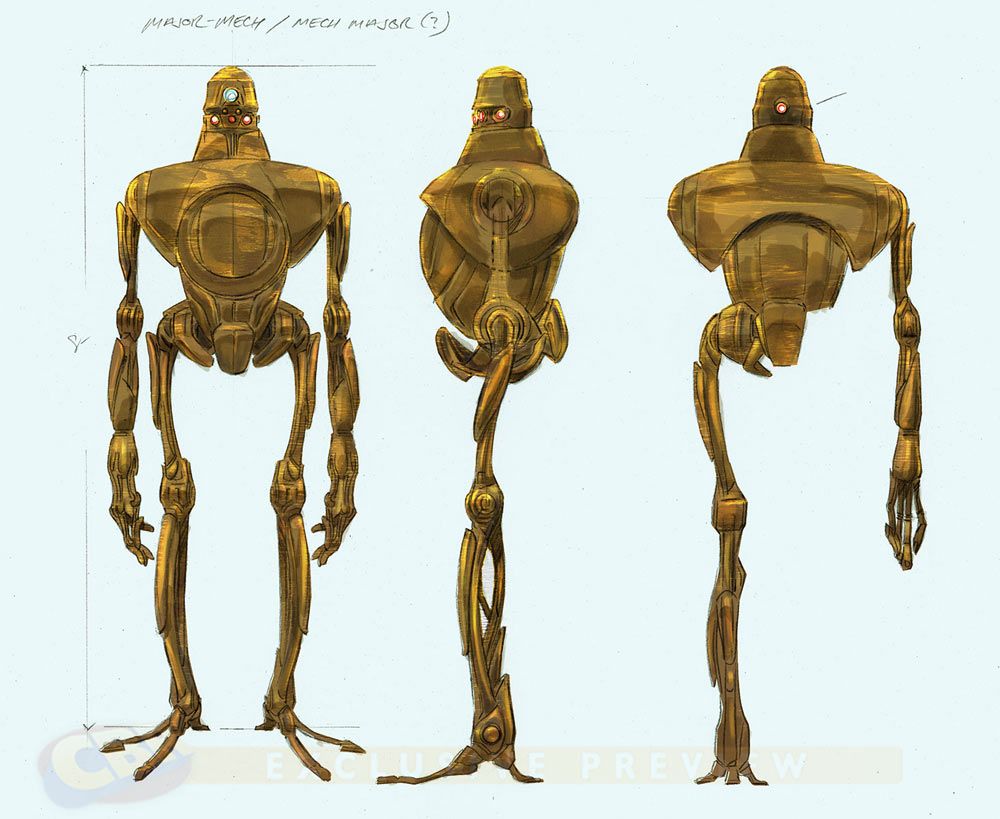The strongest power in the Valiant Universe lies in the mind of Toyo Harada, the creator of the Harbinger Foundation. But recent events have taken everything from him, forcing him to go on the run, outed to the public and without a hope of escape.
Or, so it would seem. Harada has a final move up his sleeve, and that desperate, dangerous plan is the focus of "Imperium," a new, ongoing series from "Harbinger" writer Joshua Dysart and artist Doug Braithwaite. Debuting in February, the new series follows Harada on his new mission, one that promises to be violent, surprising and highly political.
Currently in Iraq working with the UN World Food Programme, Dysart took some time to speak with CBR News about what readers can expect from the upcoming book -- and from Harada, one of the Valiant U's most unpredictable and heroic denizens. Plus, Valiant also shared an exclusive look at Braithwaite's art from the series!
CBR News: You've been working in the Valiant Universe right from the start, telling a singular story with Toyo Harada which continued through "Harbinger," "Harbinger: Omega," and now into "Imperium." How have you found the experience of getting to spend such a long time establishing and changing the world of one character?
Joshua Dysart: I love it. Fleshing out a single fictional person far beyond the framework that originally inspired them is one of the key reasons I became a writer in the first place. Usually only novelists get to ride along with a character for this long. And approximating the passage of time and accumulation of experience is not something most comic book characters even allow for. I feel really fortunate.
How much leeway have Valiant given you with the various upheavals and twists you've made in your longform storyline thus far?
[Valiant Editor-in-Chief] Warren [Simons] and I work together on most of this stuff. Warren is my primary communications point with Valiant, so in that regard, it's less Valiant giving me leeway, and more Valiant being a creative partner in tandem with me. But they very rarely, if ever, give me a mandate. It's pretty collaborative. We fight it out sometimes, and while that probably drives Warren crazy, I secretly love it. I think it gives things energy and forces the people making the book out of their complacency.
Is an idea like "Imperium" something which was planned to happen for a long time, or was it simply the logical next step in the story, which just happened to come together?
If you plan too far ahead, and you're inflexible with those plans and rigid in your thinking, then the spontaneity gets sapped from your narrative. The path people take through life is unpredictable, so there has to be room in stories for that same unpredictability. We knew that Harbinger was coming to an end a year before it did. We knew that we wanted to focus on Harada's next step. What we weren't sure of how that was all going to look by the time we got that point.
For the time being, have you drawn a line under "Harbinger" and its characters like Peter, Zephyr and the others? Should we consider that chapter of the story to be closed for now?
For now, yeah. But they're out there, living and loving and looking for themselves. It's only a matter of time before their actions become noteworthy again.
You're working with Doug Braithwaite, an artist with a visually distinctive style, on the story. What does his particular style bring to a series like this?
It's been amazing. He's a world-class illustrator, and I really dig his humanism and compassion. I'm always trying to write from genuine place, always trying to write honestly, and I think he pulls from that same creative well.
What kind of tone will "Imperium" have, in contrast to the previous stories you've been telling with Harada?
Whenever Harada showed up in "Harbinger," he brought with him a strange science fiction glow that spilled over the lives of the other characters. When "Harbinger" isn't about Harada, it wants to be like "Strangers in Paradise" or something. But the minute he shows up, it's all global domination through mind-control, corporate super beings and experience-displacement pods.
Now that Harada is leading his own book, you should probably expect way more trans-dimensional phase-shifting. That's not to say that we're leaving behind the grounded elements. Bringing big ideas back down to Earth is still my favorite part of working in comics.
Having Harada building a new team presumably allows you to move into any other kind of genre you like -- you can mix up robots with aliens, the supernatural with the scientific. Are you enjoying the chance to mess around in different genres within the Valiant Universe?
It's just a much grander pulp exercise. There's only been a few times in my career where I felt like I was tapping into the great pulp writers I loved as a kid, and this is one of them. It's bigger and crazier than we've gone before, so I just want to people to dig on a story that hinges on big ideas and a certain degree of absurdity played straight as hell.
Since creating the Harbinger Foundation, Harada has proven to be one of the most popular characters in Valiant's relaunch, which saw him wander across into other books like "Unity." Is the idea of "Imperium" to specifically continue that idea of a wider, shared Valiant Universe, and play around with unexpected other characters and locales?
Absolutely. Look, I'd love to just get to play with my toys and never have anyone come crashing in to my stories, but that's not life. I think it would be cool if Harada's frustration is, in a way, my own. He has his own plans. He has stuff he needs to do, but here comes the Valiant U, controlled by some of the greatest creators in comics, and he's got to deal with it.
It'll piss him off, but it's part of the gig of being Harada.
In "Harbinger," Harada typically was quite restrained, but lately you've been bringing him into some real trouble and exploring a whole new side to him. What interested you most in dropping the floor out from under him here, exposing him to the world, and leaving him in such a dangerous situation?
I think it's interesting to watch a profoundly measured, controlling person, have to start improvising, and that's what we're doing with Harada. Before, he often took every little decision into account before he acted. But that didn't work. His second great empire fell. Now he's just making it up as he goes along. I find that really fascinating.
"Harbinger" could have been the end of his story, but instead we're immediately picking up with a completely new angle on the character.
Yeah, that's really fun for me. I'm a real context-oriented guy, and I saw a chance here to do something I've been unconsciously working towards for a lot my career: A chance to fully engage in the political context of a world with super-powered beings in it. Now, I know I'm not the first to do this, but my take is more "politicalsploitation." Remember Captain America punching out Hitler? I want to do that today, with my characters. I want them to take the world stage, as we see it right now, and fuck shit up.
I'm not sure if that's ethical storytelling, it very well may not be, but it sounds like a crazy fun thing to do. And I couldn't do that until I exposed Harada to the world, until I made him an uncontrollable force. Thematically, it's a trip, since the incarnation of Harada we know from "Harbinger" was really a bit of a comment on capitalism. But now we can explore issues of democracy and totalitarianism. Which, with the record low voter turnout in America and democracy under the boot of extremism in flashpoints all across the world, seems like a pretty topical topic.
And besides, I don't want to just do the same thing over and over again with Harada. I could've kept the status quo of the Renegades forever, you know? Just let them be who they are, do their thing. But that's because they're just kids. Writing them is a more human, down to Earth experience. Harada is an opera. He's big and bold. He affects the arc of human history. It makes more sense for him to have tremendous shifts in his path.
Valiant has a number of conflicted leads, from X-O Manowar's unwieldy sense of vengeance to The Eternal Warrior's anger issues. Where do you think Harada sits within that? Do you see a heroic edge to him -- albeit one that will only be seen by the public if his new plan succeeds?
I think Harada, along with maybe Archer, Livewire and Faith, is the most inherently heroic character in the Valiant Universe. I just think Harada has a bigger vision and therefore a more impossible task set out for himself. And that vision creates a disconnect sometimes between what is right in the moment and what is wrong. That's why people think he's a villain.
But all who do bad things are not villains. And all who do good things are not heroes.

